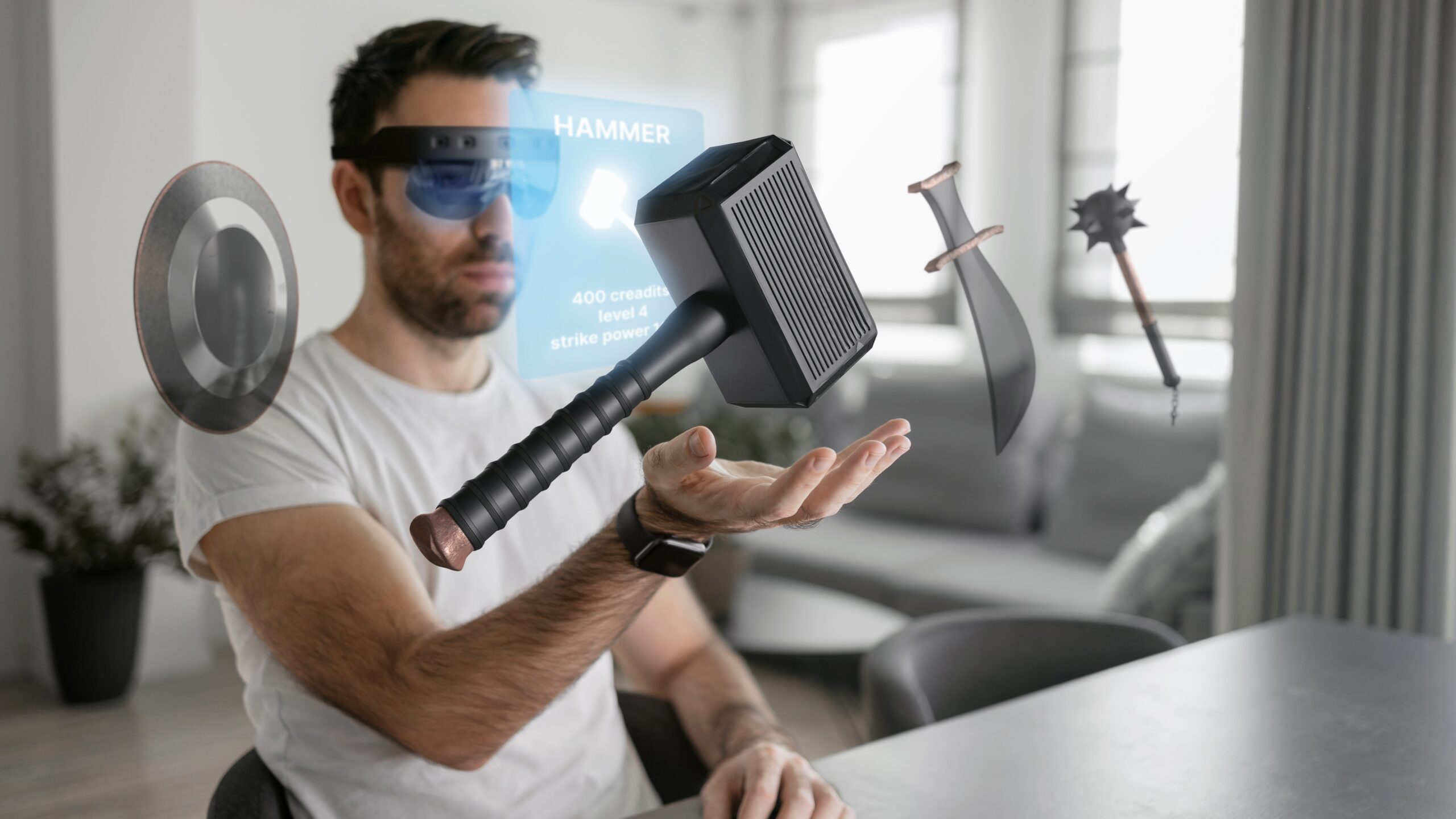‘Ownership in games is a gaming issue, not a crypto one’: Polemos co-CEO on the state of ‘GameFi’

Getty Images
Web3 gaming. GameFi. Crypto, blockchain, NFT games. Whatever you want to call it/them, it remains a super-strong narrative in the crypto industry and one that’s very much shifted from “earning” in game to asset ownership.
For our latest handle on understanding this rapidly evolving web3 sector, we got the lowdown from the Singaporean-based blockchain game platform Polemos and its COO and c0-CEO, Richard McLaren.
‘The big change is that gameplay is coming first’
Hi Richard, when we last chatted about web3 gaming with you [in January], you noted that you’d be surprised if blockchain-enabled asset ownership isn’t already in the wings for major gaming studios. Are you starting to see more green shoots in that regard?
Not yet from anything you would call a major franchise. But we are seeing games with paths to mass distribution – by which I mean things like the mobile app stores, consoles and PC distribution via Steam or Epic.
And these will have an opt-in for ownership powered by a blockchain at some point in a player’s journey. Games like Machines Arena, for example.
Do you think the concept of digital-asset ownership in gaming is steadily gaining momentum, then? And is perception of it becoming more forgiving, now we’ve moved on from peak crypto bagging at the height of the FTX drama and aftermath?
It’s still baby steps right now, but yes I think we are seeing some games adopt ownership as a core part of their proposition and some of those games are looking really good.
I’d say that within 12 months, you will be able to go to your distribution channel of choice and play a game that has some level of ownership in it.
The big change from a year ago is that gameplay is coming first and the ownership or blockchain aspect is a means to an end, not a raison d’être.
‘GameFi’ is a term that turns players off
Some elements of the US government, and US regulatory bodies, have taken up an anti-crypto sentiment. Do you see regulatory headwinds for GameFi there and indeed in Australia?
Ownership in games is a gaming issue, not a crypto one. We are increasingly turning away from majoring on what is a back-end technology and focusing on the player experience and what the player value proposition is.
Even the term “GameFi” is a kind of crypto nod and wink, which turns players off. As such, we think ownership will rise or fall by whether the games are, to be honest, any good.
The position of a US regulatory body on crypto will be as irrelevant to the quality of a game – as it should be.
Ownership in games ‘will be everywhere’
When we first spoke with Polemos about 18 months ago, the focus of most crypto games seemed very much on the play-to-earn, guild and ‘scholar’ model. How has GameFi/web3 gaming changed since you’ve been involved with it? And how has Polemos adapted or pivoted?
Polemos has always been a group of people who enjoy gaming, who had seen the shift over a decade or so from single-player to social, multiplayer activities, and who believed that the next step in gaming as a social phenomenon was to extend the reach of a game’s world beyond the game itself – for example, through real-world ownership of what you acquired in game.
And I don’t think that has changed.
Our idea of the form that will take for the first tranche of genuinely good games that millions of people want to play is evolving as we talk to projects and see games come to life. We see much less emphasis now on any concept of earning, for example. What we do see, though, is genuinely exciting.
What challenges and opportunities do you now see ahead for the web3 gaming sub-sector?
They are really the same thing – we need a genuinely good game that millions of people want to play. Once that happens, and the ownership mechanics enhance a player’s experience of the game in a complementary way, we’re off to the races.
Ultimately, there is no sub-sector. Ownership is something that you can have in a game if it fits, and it will be everywhere. Just like multiplayer, social interaction is now.
We’ve heard many a crypto gaming influencer comment, words to the effect, that gaming is the biggest potential factor for bringing in the masses to web3 tech and crypto investing. Do you agree?
What I think is that you will be able to play a game with an ownership element in it without ever knowing there’s a blockchain in there somewhere keeping track of that ownership.
So there will be an effect, but it will likely be modest.

‘We have delivered… We are an MVP’
Can you describe how Polemos’ new platform represents a new way for gamers to interact with games on the blockchain?
We provide an easy way for players to use digital assets in game by allowing them to rent what they need from other players, facilitated by our platform. You can come to us, get what you need, and we link you into the game.
Right now you need a crypto account (on Ethereum) to log in, but in due course you’ll be able to connect with a verified email address and pay with a credit card.
On the other side of that, players with time or money spent in game can add value to other players by renting out what they have and be rewarded for that value.
And we offer a range of informational and training content to ensure you are clued up and confident you’ll pick the right game for you and know what you are doing when you get there.
What makes Polemos stand out in the industry? What does it offer that competitors lack?
We have a laser focus on the value we add to players, and through that to how we can help games grow and be successful. We have a holistic vision for that across multiple services and (and this is important) we have delivered – the platform is live and open for business.
We support one blockchain and game right now, and we are for sure an MVP, but what we have is real and a foundation for growth. We don’t see that focus, completeness, or execution elsewhere.
‘Others will follow. Very fast’
What are the trends to watch out for in web3 gaming?
Simply, look for games with an ownership opt-in down the track that you can start playing for free on your preferred app or games stores in the next 12 months.
You may try them as a curiosity but you will keep playing because they will just be so much fun to play.
Last time we spoke with you, you mentioned you were excited about Shrapnel (who Coinhead has since chatted with) as a game. Do you still hold that view? And are there any other titles that you think could make a stir in the industry?
Shrapnel remains a really strong pick. We like Deadrop (another extraction-style shooter), Machines Arena and Wildcard, too. There are other strong candidates – any of your readers who are interested should head to polemos.io for the best coverage 😉
• Do you think web3 gaming’s first major success will come from a project developed within the web3 side of the industry, or do you think it will come from a budget- and resources-rich big web2 player making a transition?
The first multi-million player game is already in late development and we are already talking to them – we just don’t know which one it is going to be.
What is clear, though, is success is going to come from an experienced, skilled independent studio with ambition and a clear vision first, and then others will follow. Very fast.
This Q&A was edited lightly for clarity.
What is Polemos?
These days, Polemos, first and foremost bills itself as a “global blockchain game platform provider”, having launched what it describes as a “world-first independent, audited, chain-agnostic blockchain game platform for collateral-free and deposit-free digital asset rental”.
The Singaporean-headquartered firm is one of the fastest-growing entrants in the web3 gaming market and closed a US$14m seed round at a $100m fully-diluted valuation early last year.
Its backers include one of the biggest and most influential investors in blockchain (including gaming) – Framework Ventures, which manages around US$1.4b in assets.
According to further info supplied to us for this (not-sponsored, just interested) article, the GameFi sector of the crypto industry was worth USD$9b in 2021. And despite the downturn in the crypto market that occurred in 2022, the sector is projected to reach US$38b in 2028, with a compound annual growth rate of 27.13%. (This is according to a recent Business Research Insights report.)
Based on this, and given the fact that some 3.8 billion people play video games globally, you can see why Richard McLaren and Polemos have strong belief in the future of gaming and digital-asset ownership within that context.
Related Topics
UNLOCK INSIGHTS
Discover the untold stories of emerging ASX stocks.
Daily news and expert analysis, it's free to subscribe.
By proceeding, you confirm you understand that we handle personal information in accordance with our Privacy Policy.








